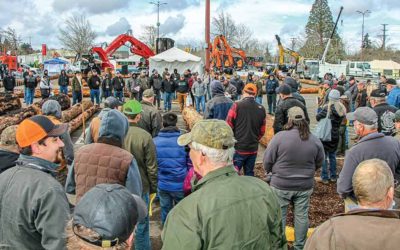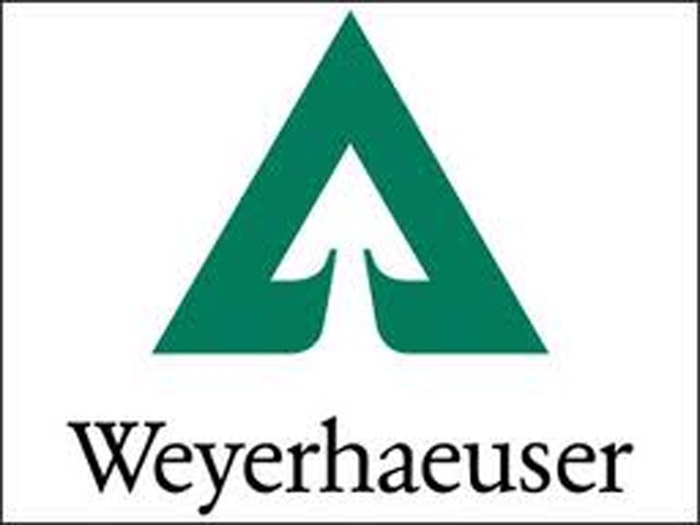Strategic Biofuels To Develop A Renewable Fuel Standard Compliance Tracking System For U.S. Forest Service
The U.S. Forest Service has awarded Strategic Biofuels, a leader in developing negative carbon footprint renewable fuels production facilities, a cooperative agreement under its Wood Innovations Program for the first phase of a multiphase project to develop a robust, auditable cloud-based system for demonstrating compliance of forestry feedstock with the Environmental Protection Agency (EPA) regulations under the federal Renewable Fuel Standard (RFS).
“Innovative biofuels technologies are emerging at a time when our forests, especially those with high wildfire risk conditions, need them the most. Passengers in the U.S. will soon be flying on airplanes powered by forest residuals from forest restoration projects and forest products facilities,” says Julie Tucker, National Wood Innovations Program Manager of Bioenergy, Biofuels, and Bioproducts, U.S. Forest Service. “Historically, forest residuals have been a disposal challenge. The Renewable Fuel Standard helps change that by giving the renewable energy sector a financial incentive to convert these unwanted forest residuals to high value biofuels and renewable electricity. EPA must ensure that forest residuals receiving credit under the Renewable Fuel Standard are qualifying feedstock. We also want them to be sustainably sourced. This initiative with Strategic Biofuels is an exciting opportunity to do that.”
The project is aimed at funding the development of a user-friendly, cost effective, and fraud-resistant gold standard tracking system that enables the forestry feedstock sector to supply the raw data that can accurately and conveniently be transmitted to the biofuel producer and validated by a third-party auditor for EPA compliance. Strategic Biofuels was selected to lead this initiative, as the company’s Louisiana Green Fuels project in Columbia, La. is expected to be the first carbon negative commercial renewable fuels plant in the world using forestry feedstock.
The company will lead a core team of senior leaders to execute and deliver the project including, the Forest Service providing general oversight and forestry experience for the initiative, facilitate information sharing, and identify and coordinate opportunities for project input from stakeholders. Weaver, one of the country’s largest providers of EPA attestation and consulting services, will bring their deep expertise in RFS compliance assurance to propose and develop reporting content and formatting, auditing protocols, and documentation methodologies.
“Creating an auditable system that fully meets EPA requirements for documenting and validating feedstock qualification, source or origin, and chain of custody currently represents a significant challenge for using woody biomass as a feedstock for renewable fuels,” says Dr. Paul Schubert, CEO, Strategic Biofuels. “We appreciate the opportunity to play a lead role in establishing the tracking criteria for our industry and to use our Louisiana Green Fuels project as the model.”
The core team will be supported by an advisory team that will provide input including stakeholder identification and engagement; review and recommendations; and other work identified as needed for the success of the project. While advisory team members have not been named, it will include representatives from the National Assn. of State Foresters, American Loggers Council, and organizations representing private non-industrial, industrialized, and tribal forest landowners.
Latest News
2024 Oregon Logging Conference Preview
Drawing loggers from around the Pacific Northwest and some much farther, the 86th Oregon Logging Conference (OLC) February 22-24 provides key resources for logging contractors including sessions covering the latest in regulatory issues and business management topics along with the big draw: Hundreds of exhibits and displays highlighting the latest in…
Weyerhaeuser Completes Carbon Credit Sale
Weyerhaeuser announced an agreement for the sale of nearly 32,000 forest carbon credits at $29 per credit. This agreement marks Weyerhaeuser’s first transaction in the voluntary carbon market and represents the sale of all credits issued by American Carbon Registry for the first year of the company’s Kibby Skinner Improved Forest Management (IFM) project in Maine…
WANT MORE CONTENT?
Spanning seven decades since its inception in 1952, Timber Harvesting highlights innovative and successful logging operations across the U.S. and around the world. Timber Harvesting also emphasizes new technology and provides the best marketing vehicle for the industry’s suppliers to reach the largest number of loggers in North America and beyond.
Call Us: 800.669.5613


